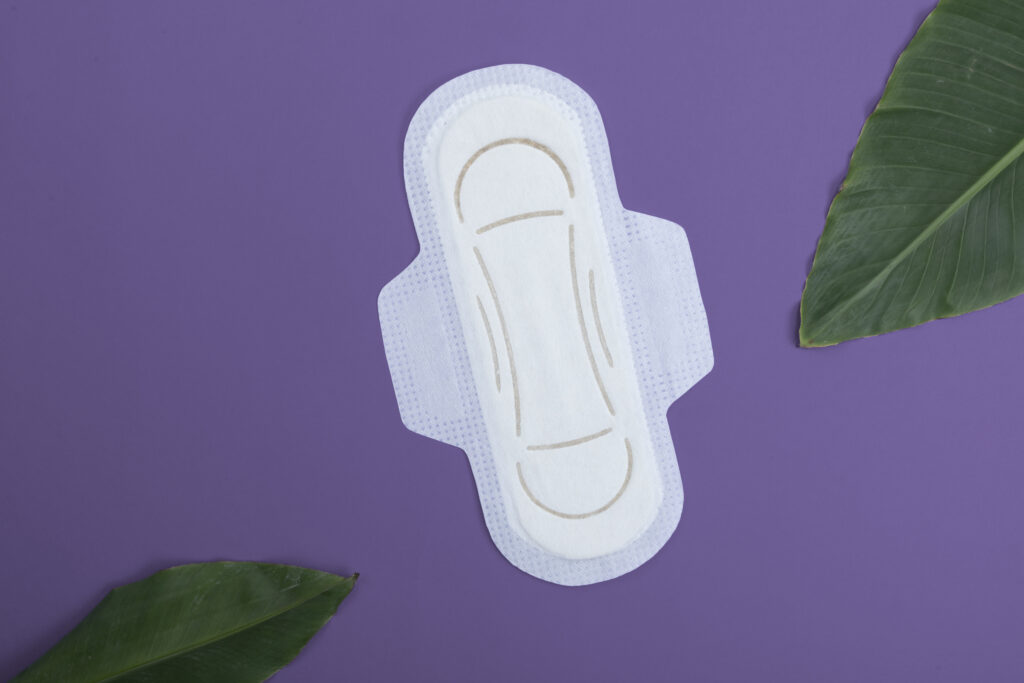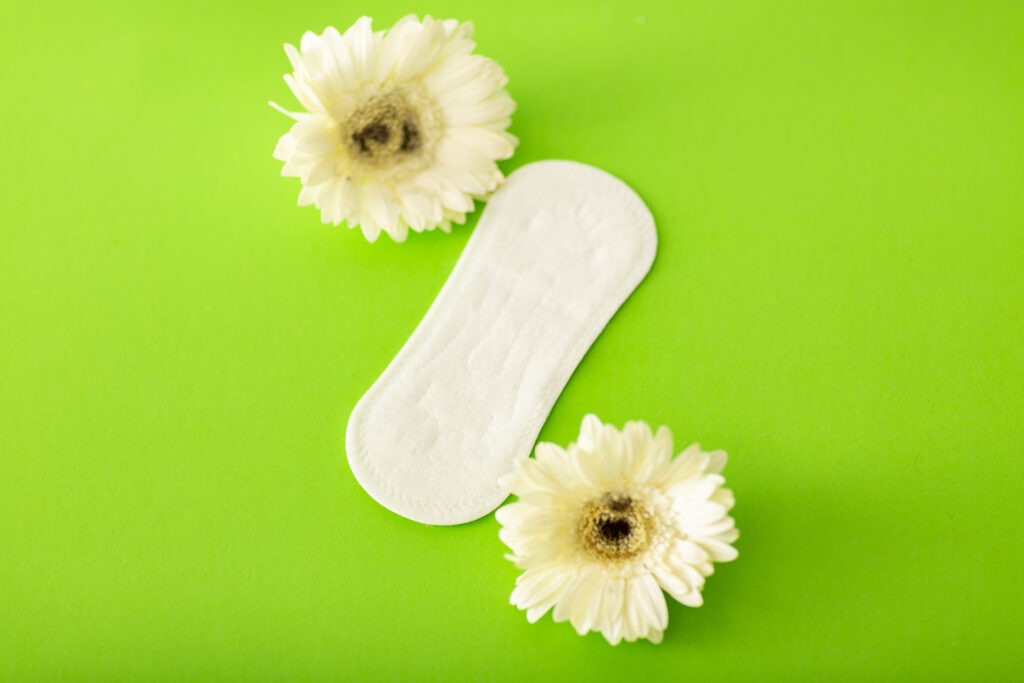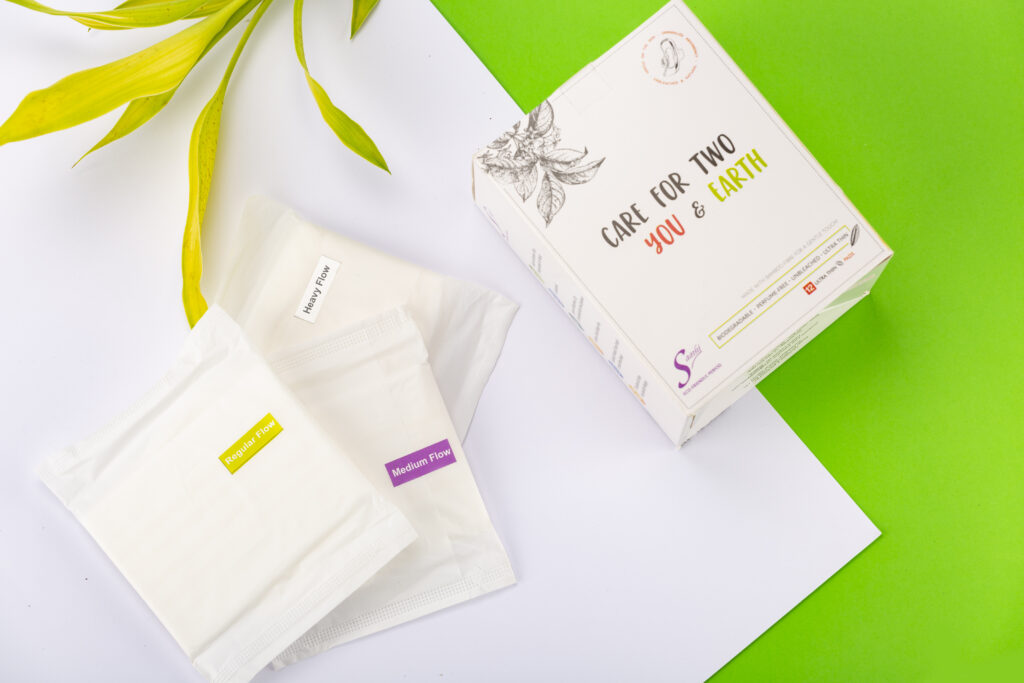Menstrual hygiene has always been a taboo and always addressed in a hush-hush manner. Apart from creating health awareness around menstruation, it is also important to create consciousness about the environmental impact caused by the sanitary pads available in the market. The plastic waste from the normal sanitary pads takes centuries to decompose causing a hazardous effect on the environment. An Ahmedabad based startup, Saathi is not only addressing the problem of awareness about menstrual hygiene but also manufactures 100 percent biodegradable sanitary napkins made of banana and bamboo fibers. These biodegradable napkins are not only eco-friendly but also help in solving the problem of agricultural waste.
“Every woman produces 60 kgs of plastic pad waste in her lifetime. Plastic is harmful as it is nearly indestructible and stays in the environment for 600 years. On the other hand, under normal circumstances, it takes approximately 6 months for a Saathi pad to decompose,” said Tarun Bothra, co-founder of Saathi Pads. In a conversation with The EarthView, he shared the details about how their biodegradable and organic pads are making their way into the lives of women and are also eco-friendly.
He further said, “The idea of a circular economy is at the core of our philosophy where everything taken from nature is eventually returned to Her, without additional CO2 emissions or harmful plastics choking the air, water or soil.”

These eco-friendly sanitary pads are made up of Banana Fiber, which is not only biodegradable but also solves the problem of agricultural waste. Tarun said, “Banana fibre is available today as agricultural waste. Usually, farmers have to bear the headache of clearing their plantations of debris from a banana tree that has given fruit, but Saathi buys it from them, generating not just employment, but in staying true to the principle of the circular economy, it regenerates waste into something useful. The dual purpose of giving fruitful earning to the average Indian farmer along with an eco-friendly plastic-free source of the absorbent product led us at Saathi to choose banana fibre for our flagship product.”
He also mentioned that these Banana fibres are highly absorbent and also very gentle on the skin. He said, “Saathi pads are 100% natural, organic and biodegradable. Their absorption capacity is at par with plastic pads. No matter the flow, these natural pads made from plant-based fibres are enough to absorb menstrual blood quite efficiently (an average of 30 ml per cycle, the pads can absorb upto 3 times this amount) provided you opt for the correct size. Plastic pads also absorb the natural moisture from the skin, leaving it dehydrated due to the chemicals present on the surface. This, in turn, causes rashes, itching, redness and discomfort which is not the case with chemical- free, natural fibre sanitary pads like Saathi.”

Kristin, co-founder of Saathi Pads, always wished to make family hygiene products from environmentally friendly materials, when she came to India. Together with Tarun’s expertise in engineering and material knowledge, they found a way to solve the problem of access and awareness about menstrual hygiene as well as found an alternative to plastic. Saathi was born out of a desire to make both a social and environmental impact.
Saathi Pads also create awareness about menstrual hygiene, which is considered a taboo especially in rural India. Bothra said, “Saathi conducts workshops and awareness sessions among women in the rural areas in the states such as Maharashtra, Jharkhand, Gujarat, Chhattisgarh and other states. Through these workshops, we educates women on the basics of menstruation, how to deal with periods, how to use pads hygienically while debunking myths about menstruation. Saathi believes that unless there is education and awareness through frank conversation, the stigma attached to a woman’s monthly bleeding will never go away and this will always hinder adoption of healthy ways to handle periods.”
When asked about the penetration of Saathi pads in rural India and its affordability in the rural ecosystem, Bothra revealed, “Villages, peri-urban areas and rural areas have even lesser penetration of sanitary pads compared to urban areas. More than affordability, the mindset which perpetuates menstruation as something to be whispered about or brushed under the carpet. It is something that women and girls should not talk about openly is the real evil. It is this mindset and behaviour that Saathi puts its efforts in. We follow a Robin Hood model wherein our urban sales help us subsidize the cost of pads that we donate in the rural areas. This makes Saathi pads both affordable and ideal for the delicate ecosystem of rural areas, which are often without decent sanitation or waste disposal. Every pad one buys is helping a girl in the vast rural landscape of the country have a happy healthy period.”
Talking about the compositing feature of these eco-friendly sanitary pads, Bothra said, “Any organic materials, which do not contain chemical residue like pesticides or bleach can be used in the composting process. Compost piles need both brown material (carbon-rich sources like straw, hay, wood chips, and dried leaves) and green material (nitrogen-rich sources like kitchen waste and grass clippings). It is worth noting that if one adds Saathi pads to a compost pile, under normal circumstances, it will decompose within 6 months.”

Saathi aims to reach the maximum number of women to exhort them to try and commit themselves to use biodegradable sanitary pads which not only are good for the body but also beneficial to the community and the environment. Tarun Bothra said, “We aim to extend the 1 Million Pads Programme to 1 billion pads, over the next couple of years. Saathi also aims to reach out to people all over the world, with its model of the circular economy, to truly make a difference in our quest to reduce plastic pollution, period poverty and raise awareness about menstruation.”
“Our goal as a business is also to widen the product range to other personal hygiene & wellness categories over the next 2 years,” said Bothra as he signs off.
Written by: Srijani Roy Chowdhury

